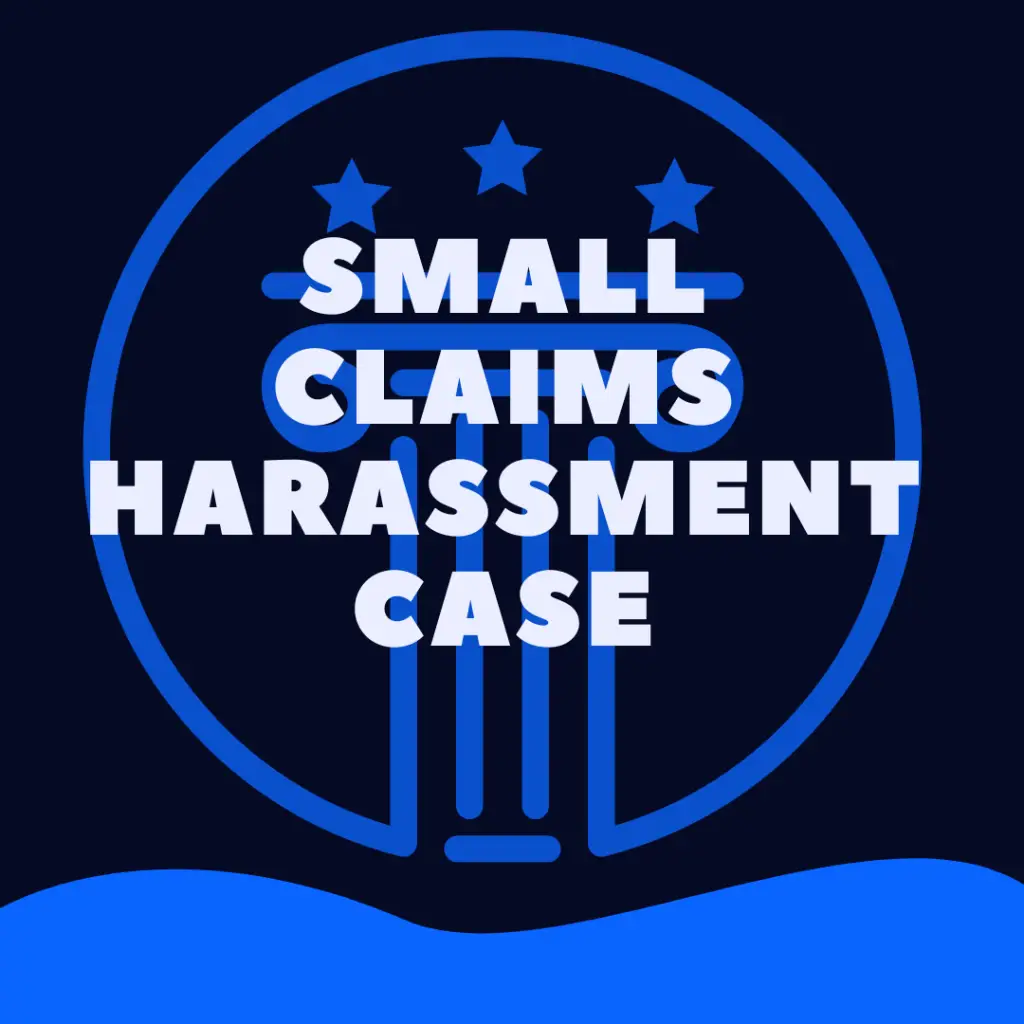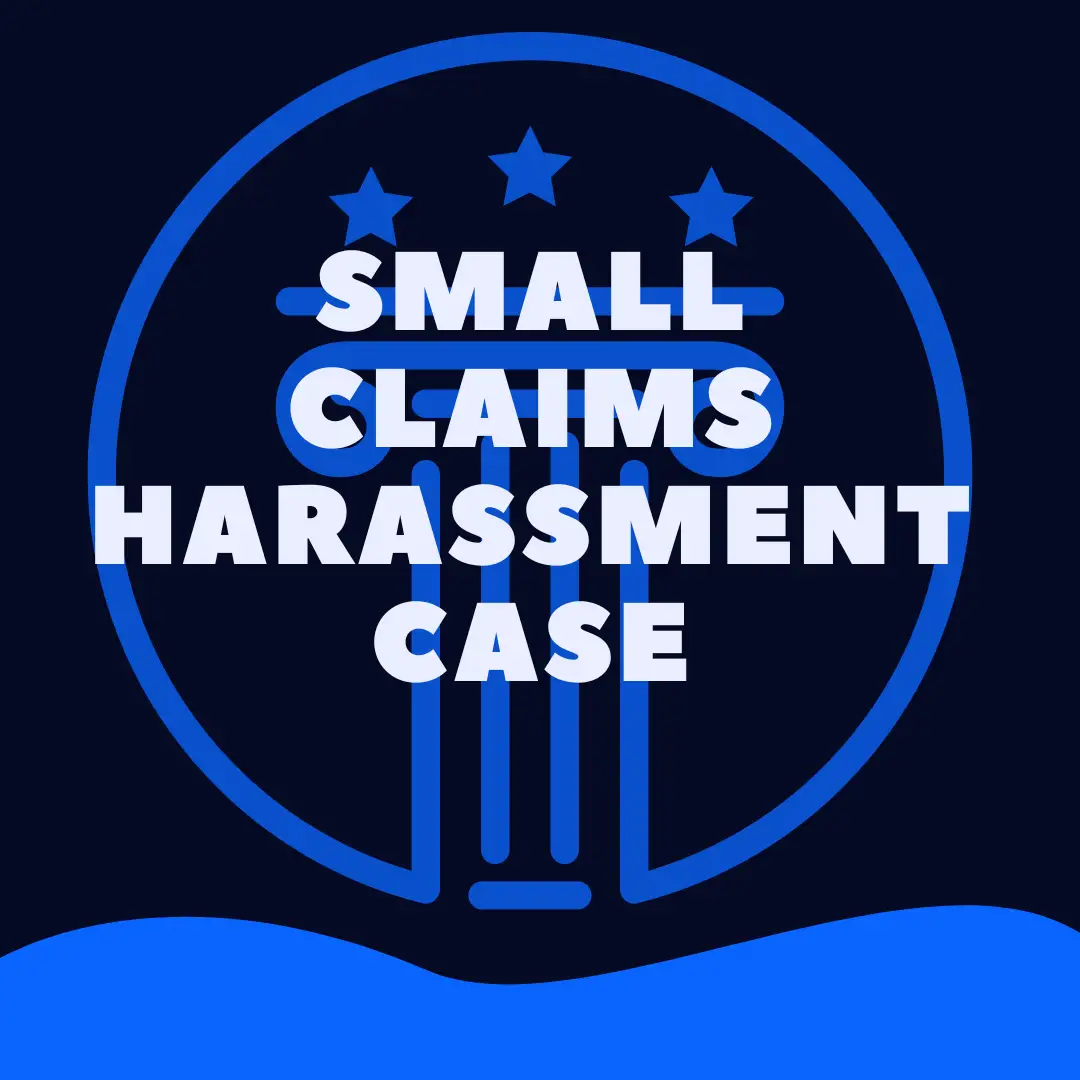Answer: Generally yes, assuming that the claim meets the other requirements to bring a case in small claims court in the jurisdiction.
In the article that follows, we’ll explain more about harassment cases and small claims court.
Can You Sue For Harassment In Small Claims Court? (Explained)
Disclaimer
The contents of this web page are for informational purposes only, and nothing you read is intended to be legal advice. Please review our disclaimer about law/legal-related information on this website before taking action based upon anything you read or see.
What is Small Claims Court?
Small claims court is an alternate dispute resolution mechanism that most US courts run in their state courts.
While many individuals and companies suffer losses in the range of $1-$10,000, those dollar amounts do not rise to the level that it is worthwhile to hire a lawyer and go through the whole civil trial process to recover the money, as the lawyer fees themselves could easily cost more than is sought.
Most small claims courts make it easy for participants to file their own claims, and in many small claims courts, the parties are not allowed to be represented by attorneys.
Small claims actions are civil in nature, and not criminal.
Each state has its own laws that govern the cases that can and cannot be heard in small claims court.
For example, in Oregon,
- the damages limit in small claims is $10,000
- class actions cannot be brought in small claims
- no attorneys allowed unless they are a named party
- all actions for the recovery of money, damages, specific personal property, or any penalty or forfeiture can be filed in small claims, so long at the damages do not exceed $10,000
In California,
- the damages limit in small claims is $10,000, though specific causes of actions may have lower limits
- the court may grant equitable relief in the form of rescission, restitution, reformation, and specific performance, in lieu of, or in addition to, money damages
- the small claims court has jurisdiction over recovery of money
It is best to check the local jurisdiction where the small claims action will be filed to confirm the max amounts that can be pleaded and whether any other restrictions exist.
Harassment Cases In Small Claims
Most cases for the recovery of money can be heard in small claims court, including physical and verbal harassment cases.
Diverting a case to small claims is less about the subject matter area and more to the size/complexity of the case.
While some states do not allow specific types of cases in small claims (like divorce, custody, and bankruptcy), others are quite broad in what can be heard in small claims.
Bringing a Harassment Case In Small Claims
Though small claims court is the destination for cases involving less money, a party heading into small claims cannot presume that the case won’t be treated seriously by the court.
Yes, judges in small claims are allowed to treat the proceedings with less formality, and may admit some evidence that would otherwise be inadmissible in regular civil cases.
But the plaintiff pursing a claim cannot show up unprepared to prove the elements of his claim.
While there are many kinds of harassment (employment, intimate, stalking), a plaintiff needs to be prepared to prove:
- that the defendant did something in particular (illegal, threatening, repetitive, inappropriate, unwelcome)
- that the conduct involved some level of intent (negligent, reckless, intentional)
- the conduct caused plaintiff to suffer some sort of provable damage
The damages cannot be speculative or guesswork; a plaintiff could prove the something happened, that the defendant was at fault, and that plaintiff couldn’t work or lost employment opportunities, but still fail to win because he could not prove the specific damages that resulted from the defendant’s actions.
What If You Need Help With a Small Claim?
While small claims is there to help people to recover smaller amounts without the assistance of an attorney, a plaintiff does not have to use small claims to get her relief.
Attorneys are often hired to assist with claims in the range of $1,000-$25,000, which may or may not fall into small claims court.
There may even be a way to recover the costs of the attorney fees.
Conferring with an attorney who specializes in civil matters, or even collections matters, could help an individual get some helpful guidance about how to proceed.
Wrap Up
Want to learn more about our justice system?
Browse our free legal library guides for more information.


